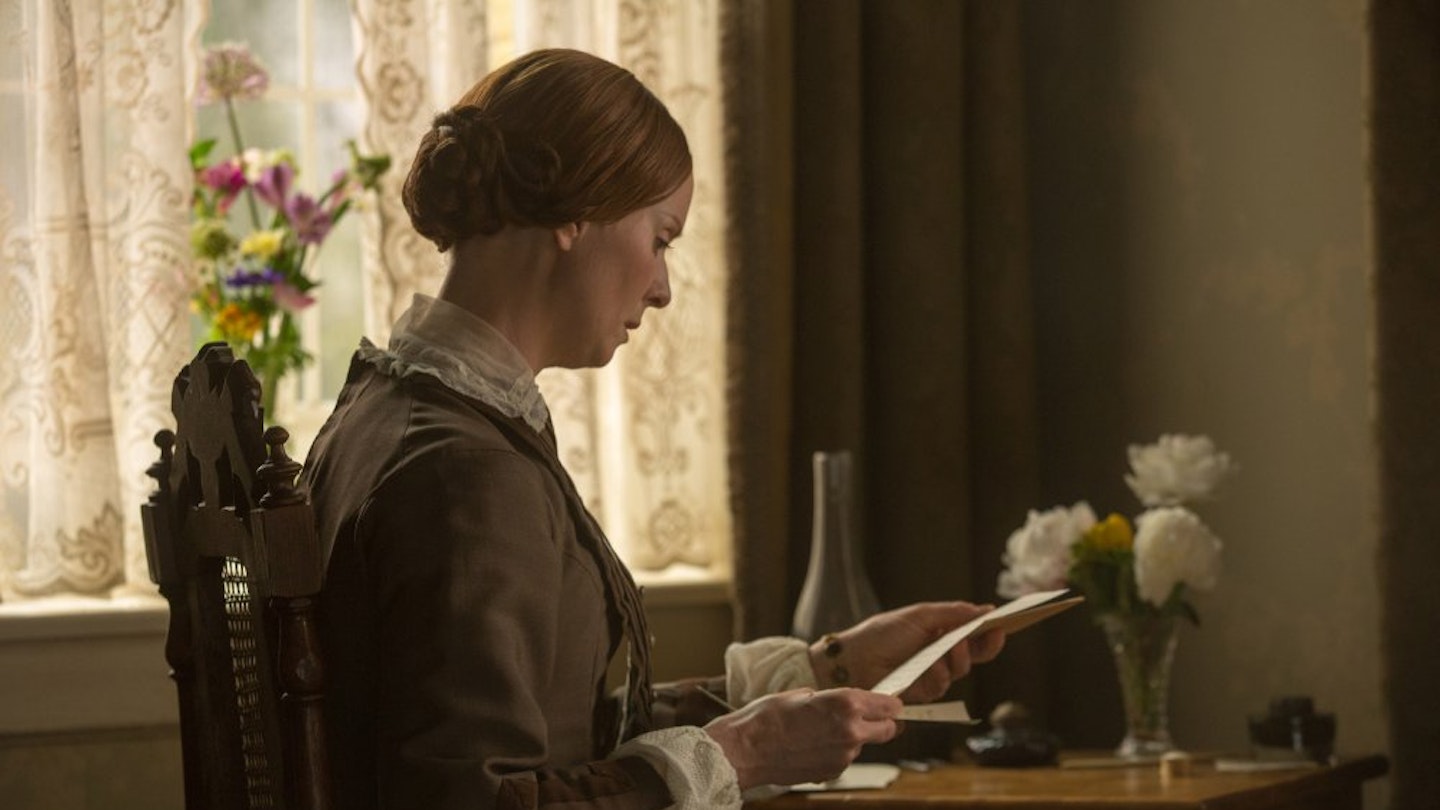There have been big-screen biopics of Ginsberg (Howl), Keats (Bright Star), Thomas (The Edge Of Love), Plath (Sylvia) and Eliot (Tom & Viv), but – despite being arguably America’s most celebrated female poet – Dickinson has never enjoyed proper cinematic treatment. She finds a worthy suitor in British director Terence Davies, whose well-honed lyrical approach and appetite for familial/religious conflict makes for a potent portrayal. From the fiery opening scene onwards, in which a young Dickinson (Bell) spars intellectually and theologically with her strictly Christian teacher, this is a film which aims to be as dense and emotionally profound as the poems by which it is inspired, and very nearly manages it.
A film which aims to be as dense and emotionally profound as the poems by which it is inspired.
After a short time spent in Dickinson’s youth (and an unlikely but effective use of age-accelerating CGI), we switch to the poet in middle-age, offering Sex And The City’s Cynthia Nixon the opportunity for a superb soul-baring performance of a lifetime. Striking up a friendship with teacher Vryling Buffam (Catherine Bailey), there’s the kind of sly wit and “delightful banter” (as one character puts it) that made Love & Friendship such a joy. “Going to church is like going to Boston,” remarks Buffam at one point. “You only enjoy it after you’ve gone home.”
Davies is uninterested, however, in straightforward comedy of manners, and while his stagy script skewers 19th-century New England high society with genuinely side-splittable moments, there is an emotional and melancholic undercurrent. Dickinson is a loner, who never leaves her family homestead, never marries, and refuses to engage in society. It’s all her choice, as Davies is keen to emphasise, but hers is not a happy life. Stricken with grief over family deaths and her brother’s infidelity, she falls into a steep physical and mental decline, and the last third of the film shifts gears from sparkling repartee into one-note melodrama.
It’s visually a little stale, too; after the epic Scottish scenery of Davies’ last film, Sunset Song, A Quiet Passion seems drab by contrast, confined to the single location of a modest 19th- century house, the digital inadequacies of the cinematography often too obvious. But there is still much to admire here: Davies is one of this country’s most important and most undervalued filmmakers, and in Dickinson – a woman who rejected religion to devote a life to art – he finds a worthy kindred spirit.
